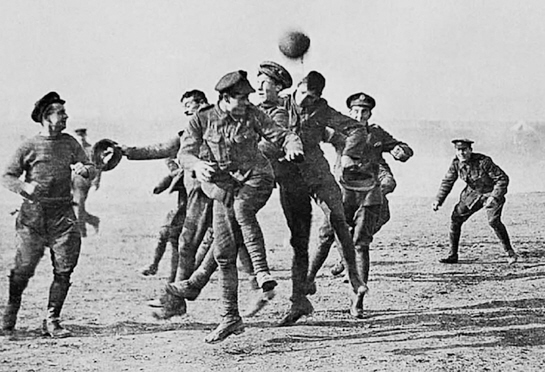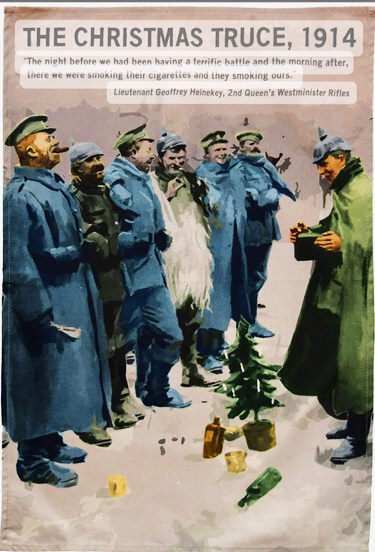When it comes to me and music, basically I’m a lyrics man. Of course I do love a good melody and I appeciate a skilled and creative arrangement, but my favorite music primarily comes from the recordings of talented singer-songwriters (with the emphasis on songwriters) like Lyle Lovett and John Hiatt, a duo I saw in concert out in Albuquerque years ago; Harry Chapin; Bill Morrissey; Tracy Chapman; David Mallett; Randy Newman; Kate Campbell; Greg Brown; Mary Chapin Carpenter; Arlo Guthrie, Bob Dylan; etc. [and yes, I do live in the past]).
And in the same way I can’t stand watching a poorly scripted movie (where you know fifteen minutes into it what the ending will be, and which feels like some flick you’ve seen a dozen times before), I tend to embrace songs whose lyrics are seriously creative and cleverly written. Lyrics that wake me up and surprise me with their uniqueness, lyrics that take me places either where I have never been before or places I have been but are described in such more perfect ways than I ever could.
Along with this, I discovered long ago that I’m a romantic at heart where lyrics are concerned. And no, I’m not talking about a fondness for boy-meets-girls romances. It’s just that what I hope to find are lyrics that are powerful in some way, lyrics that tell a story or describe a situation that will make me deeply feel something. I want to be punched in the breadbasket and heart by the lyrics.
That being said, the story told in the following narrative ballad is not fiction. It’s inspired by an actual historical event that went down on Christmas Day, 1914, during World War I. You’ve probably read about the senseless and inhumane carnage of the trench warfare that both the British and the Germans endured on a daily basis for so long. Or perhaps, like me, you may have read one or more of the handful of non-fiction books that cover this incredible event. And actually you may, in fact, have already experienced these lyrics before, as the song is a well-known ballad.
After the song plays, I will share a few additional details that I’ve garnered from historical accounts of that unimaginable day (which actually ended up being more like two-and-a-half days) .
The song is titled “Christmas in the Trenches” and was written and recorded by singer/songwriter John McCutcheon circa 1984.
So, are your emotional seatbelts fastened securely?
“CHRISTMAS IN THE TRENCHES”
My name is Francis Tolliver. I come from Liverpool
Two years ago the war was waiting for me after school
To Belgium and to Flanders, to Germany to here
I fought for King and country I love dear
It was Christmas in the trenches where the frost so bitter hung
The frozen field of France were still, no Christmas song was sung
Our families back in England were toasting us that day
Their brave and glorious lads so far away
I was lyin’ with my mess-mates on the cold and rocky ground
When across the lines of battle came a most peculiar sound
Says I “Now listen up me boys”, each soldier strained to hear
As one young German voice sang out so clear
“He’s singin’ bloody well you know”, my partner says to me
Soon one by one each German voice joined in in harmony
The cannons rested silent. The gas cloud rolled no more
As Christmas brought us respite from the war
As soon as they were finished, a reverent pause was spent
‘God rest ye merry, gentlemen’ struck up some lads from Kent
The next they sang was ‘Stille Nacht”. “Tis ‘Silent Night'” says I
And in two tongues one song filled up that sky
“There’s someone comin’ towards us,” the front-line sentry cried
All sights were fixed on one lone figure trudging from their side
His truce flag, like a Christmas star, shone on that plain so bright
As he bravely strode, unarmed, into the night

Then one by one on either side walked into no-mans-land
With neither gun nor bayonet we met there hand to hand
We shared some secret brandy and wished each other well
And in a flare-lit soccer game we gave ’em hell

We traded chocolates, cigarettes and photgraphs from home
These sons and fathers far away from families of their own
Young Sanders played his squeeze box and they had a violin
This curious and unlikely band of men

Soon daylight stole upon us and France was France once more
With sad farewells we each began to settle back to war
But the question haunted every heart that lived that wonderous night
“Whose family have I fixed within my sights?”
It was Christmas in the trenches where the frost so bitter hung
The frozen fields of France were warmed as songs of peace were sung
For the walls they’d kept between us to exact the work of war
Had been crumbled and were gone for ever more
My name is Francis Tolliver. In Liverpool I dwell
Each Christmas come since World War One I’ve learned its lessons well
That the ones who call the shots won’t be among the dead and lame
And on each end of the rifle we’re the same
~ ~ ~ ~ ~ ~ ~ ~ ~ ~ ~ ~
I can barely imagine the sheer human need and relief that the combatants on either side felt when they had tentatively stepped across the barbed wire barriers and into each other’s camps only to find… regular blokes just like themselves! And so both sides did share around their cigarettes and chocolates and souvenirs. And then of course… soccer! Wouldn’t that be a nice way to wage war? With a soccer match?
But the thing that delightfully still surprises me from my reading is the following unbelievable scenario:
While the cats are away, the mice will play. Both war parties (consisting of the privates, corporals, and sergeants) had been virtually left to themselves by their majors and colonels for hours at a time that day, leaving the ‘grunts’ to fight it out as best they could for just a while on their own. I mean, hey, it was Christmas. So it’s pretty likely the superiors were snug and safe, somewhere well enough behind the respective enemy lines, and drinking up their Christmas toasts to one another. Because rank does have its privileges.
But here’s the truth of it: all of the soldiers on both sides, in the name of the Christmas spirit, had deserted their posts! The soldiers on both sides had just committed treason, a crime punishable by the firing squad! But… they had done it anyway because… well, it just seemed like the thing to do. At the time. I guess you just had to have been there. And more importantly, because war is senselss and stupid. And life is precious. And… OK, sure, because the cats were away.
But of course any time “the cats are away,” there’s a risk that the cats might just come back! And guess what! Their superior officers did come back. They came back from time to time to inspect their troops, measure any progress or lack of it, to see how their trench fortifications were holding up, and maybe even to count casualties.
And just what did these superior officers on either side discover?
Absolutely… nothing. Everything… as usual. And why?
(Now, I know this is going to sound like a poorly written, silly episode of HOGAN’S HEROES, but…)
Because the grunts on both sides had posted lookouts just for their officers returning. And when the alarm sounded, alerting them that officers were incoming (!), why the men just scampered right back behind their sandbagged posts like good little boys, manned their rifles and machine guns once again, and opened fire on one another! Funny thing was though, their respective ‘aims’ ‘seem’ to have gotten so bad all of a sudden that they apparently couldn’t hit the broad side of a barn.
No casualties.
But it LOOKED good. It was theater. And then of course, they all scampered righ back to their little yuletide party after the brass had departed once again.
It. Just. Doesn’t. Seem. Possible…
Does it.
You know in John McCutcheon’s introduction in the above video, I honestly just love his sweet anecdote of that little bevy of ex-German soldiers who “were THERE seventy-five years before,” showing up at John McCutcheon’s concerts to hear ‘their‘ story… being validated… in his song.

What follows below was taken from a page posted on this url: https://blogs.loc.gov/headlinesandheroes/2020/12/good-will-toward-men-the-great-wars-christmas-truce/
The fighting in Europe had been growing for almost five months when Pope Benedict tried to arrange a truce between nations in early December 1914 for Christmas. But his efforts failed when Russia declined the truce. The notorious trenches of World War I were filled with weary, cold soldiers. But along the British and German lines, a sudden rise of the Christmas Spirit among the soldiers created a phenomenon that wasn’t seen for the rest of the war—the soldiers decided not to fight on Christmas. Stories of this unofficial Christmas Truce were published in newspapers around the world.*
The Chicago Herald printed part of a letter from a British soldier describing what took place. “On Christmas eve we were shouting across ‘Merry Christmas!’ The Germans shouted, ‘Don’t shoot till New Year’s day!’ Christmas morning the weather was foggy and there was no firing. We started wandering over toward the German lines. When the mist cleared we saw the Germans doing the same thing.”
Climbing from their trenches onto the battle-scarred “no man’s land,” British and German soldiers shook hands, swapped cigarettes and jokes, and even played football. “We all have wives and children…we’re just the same kind of men as you are,” one German said.
Gifts were exchanged between soldiers: pies, wine, cigars and cigarettes, chocolates, pictures, newspapers. Whatever they had with them in the trenches. Some even exchanged names and addresses to reconnect after the war! “We exchanged souvenirs; I got a German ribbon and photo of the Crown Prince of Bavaria. The Germans opposite us were awfully decent fellows—Saxons, intelligent, respectable-looking men. I had quite a decent talk with three or four and have two names and addresses in my notebook.” (New York Times, December 31, 1914, World War History: Newspaper Clippings 1914 to 1926.)
The day would be remembered and memorialized as a moment of peace during the long First World War. A day when soldiers put aside their orders and listened instead to their common decency and humanity. As one German soldier noted, “You are the same religion as we, and today is the day of peace.”
SIGH !

I know it is silly, but I often think about how there would be no wars if the people just refused to fight. The authorities would not be able to kill or lock up ALL the men refusing to show up. Tom tells me it is stupid to even think that because there has always been war and always will be war.
LikeLike
My husband, Tom, not Tom Lyford!
LikeLike
https://images.app.goo.gl/M82YHrSYEXVLVpPg9
LikeLike
I should watch that movie.
LikeLike
Moving & memorable! 👏
LikeLike
I LOVE that song ❤️
LikeLike